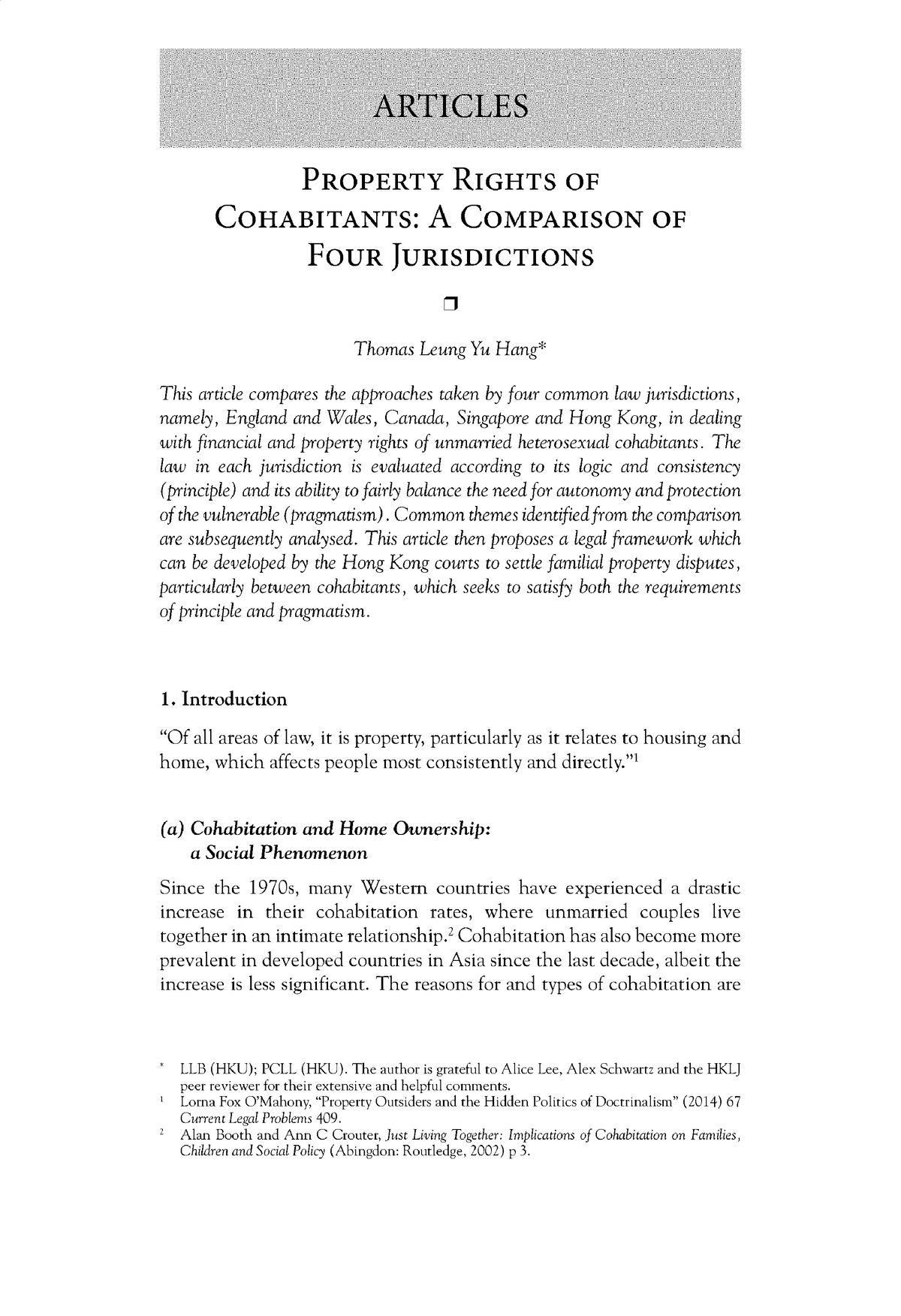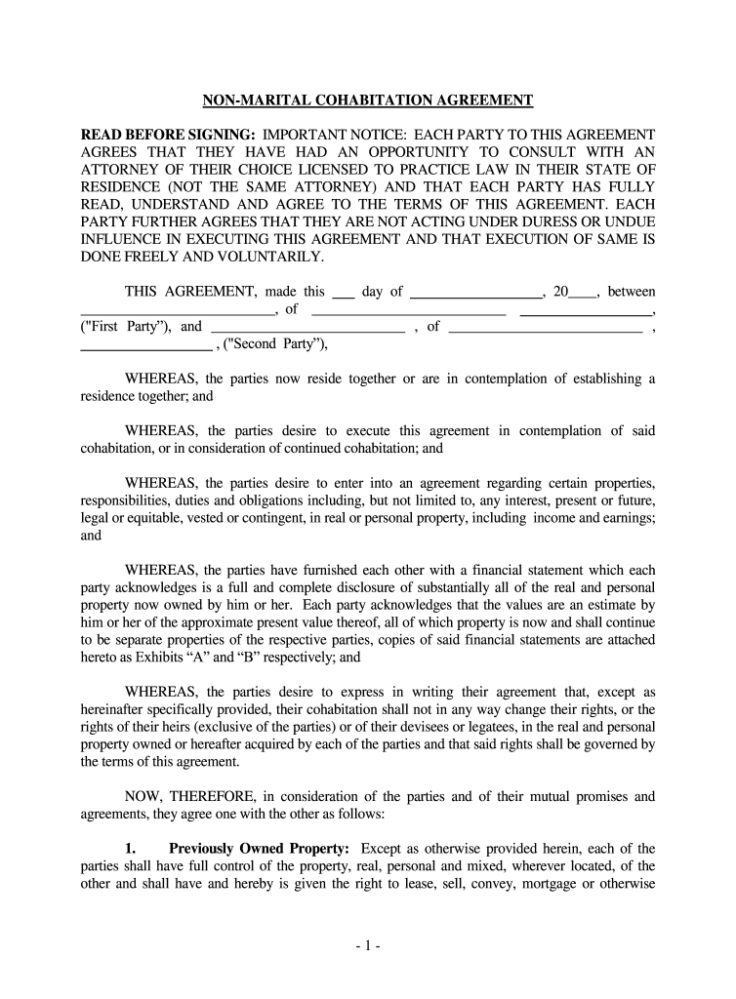Enforcement of Cohabitation Property Rights in Kansas
The issue of cohabitation property rights can be tricky and delicate, especially when couples live together without the formal bond of marriage. In Kansas, as in many other states it’s important to grasp these rights for anyone in a cohabiting relationship. Picture sharing expenses and creating a life with a partner for years only to encounter disagreements over property if the relationship comes to an end. Such situations can be challenging and emotionally taxing. Being informed about how the law perceives your property rights is crucial, in preventing such disputes.
In Kansas the laws governing property rights for cohabiting couples are influenced by both statutes and court decisions. Unlike spouses partners living together don’t automatically enjoy the same legal protections or entitlements to each others assets. This absence of acknowledgment can create challenges if the relationship comes to an end. To protect your interests it’s crucial to grasp the principles that regulate property rights, for couples cohabiting.
Legal Framework for Property Rights in Kansas

In Kansas the law doesn’t explicitly outline how property rights work for couples living together like it does for married couples. Instead the rules regarding property rights for partners who cohabit are mainly based on property and contract law. This implies that unless you have an agreement in place the distribution of property could follow regular legal principles instead of having any specific safeguards.
Here’s a quick rundown of how property rights are typically managed.
- Separate Property: Property owned individually by each partner before the relationship or acquired through inheritance or gifts typically remains separate.
- Joint Property: Property purchased together during the relationship may be considered jointly owned, but proving joint ownership can sometimes be challenging without formal documentation.
- Contracts and Agreements: Cohabitation agreements can provide clarity and protection by explicitly stating how property should be divided if the relationship ends.
Without these agreements settling property disputes usually involves taking legal action, which can be expensive and lengthy. Its advisable to seek advice from a lawyer to grasp how these laws could relate to your circumstances and to draft any essential legal paperwork.
How Cohabitation Agreements Impact Property Rights

Cohabitation agreements are an approach for couples to handle their ownership and financial obligations. These contracts can prove to be highly advantageous in preventing disagreements down the line. Based on my observations I’ve witnessed how these arrangements can provide reassurance and avert disputes when a relationship encounters difficulties.
An effectively crafted cohabitation agreement can cover a range of matters such as
- Property Division: Clearly outlines how property will be divided in the event of a breakup.
- Financial Contributions: Details each partner’s financial contributions to shared property and how these should be handled.
- Debts and Liabilities: Specifies how debts incurred during the relationship will be managed and divided.
Having a cohabitation agreement can make things easier and establish guidelines for settling conflicts. It allows you to have conversations and reach consensus on matters when both partners are in a positive place. Seeking the assistance of a professional to create a personalized agreement can be a valuable step towards protecting your interests.
Enforcing Cohabitation Property Rights in Kansas

Enforcing cohabitation property rights can be quite a challenge, especially in Kansas where the laws are not always straightforward. I recall a friend who faced a legal struggle following the end of a relationship. They had accumulated shared assets but the lack of a clear agreement made the division process difficult. This situation is not unique and serves as a reminder of the importance of understanding the intricacies of property enforcement.
In Kansas upholding property rights for partners living together usually requires:
- Proving Ownership: Establishing that you have a rightful claim to the property can be tricky without a formal agreement. Documentation such as receipts, joint bank statements, and property titles can be vital.
- Filing a Legal Claim: If an agreement can’t be reached amicably, filing a claim in court might be necessary. This process often involves proving your contribution to the property and how it was intended to be shared.
- Legal Representation: Having a lawyer who understands cohabitation property issues can make a significant difference. They can help navigate the legal system and advocate for your rights effectively.
In reality upholding these rights can be challenging and emotionally draining. Establishing a written agreement beforehand can help alleviate a lot of time and stress when conflicts arise. Its not solely about safeguarding belongings but also about ensuring fairness in difficult situations.
Common Challenges in Property Rights Enforcement
When it comes to upholding rights in living arrangements there are often obstacles to overcome. I’ve witnessed how these hurdles can lead to battles that drag on and cause a lot of stress. Let me give you an overview of the issues you might encounter.
- Lack of Documentation: One of the biggest challenges is proving your ownership or contribution without formal records. Many people rely on verbal agreements or casual arrangements, which are harder to enforce legally.
- Disputes Over Contributions: Disagreements about who contributed what and how much can arise, especially if financial contributions weren’t tracked carefully. This can lead to lengthy disputes in court.
- Emotional Tensions: Dividing property in the aftermath of a breakup can be emotionally charged. Personal relationships can complicate legal proceedings, making negotiations more difficult.
Tackling these issues usually calls for a blend of perseverance and careful planning. Gathering ample evidence and consulting legal experts can be crucial in navigating these hurdles successfully.
Legal Remedies for Disputes Over Property Rights
When it comes to property disputes understanding your options for legal recourse can provide great peace of mind. In my view having a roadmap for moving ahead can significantly impact the resolution of conflicts. Here are a few legal remedies that are accessible in Kansas;
- Mediation: Mediation is a less formal process where a neutral third party helps both sides reach an agreement. It’s often quicker and less costly than going to court, and it can help preserve relationships.
- Legal Action: If mediation fails, taking legal action might be necessary. This involves filing a lawsuit where a judge will decide how the property should be divided based on the evidence presented.
- Property Settlement Agreements: Sometimes, a property settlement agreement can be reached outside of court, detailing how property will be divided. This agreement is then submitted to the court for approval.
Every remedy comes with its own pros and cons. The best option for you hinges on the details of your circumstances and the willingness of both sides to engage in discussions. Getting advice is crucial for navigating these choices smoothly and achieving a result.
Case Studies on Property Rights in Kansas
In Kansas the complexities and hurdles of cohabitation property rights come to light through real life case studies. I remember a situation where a couple who had been living together for years ended up in a disagreement over property after their breakup. They had bought a house together but since they didn’t have a written agreement dividing the property turned out to be quite a challenge. These experiences can provide valuable lessons.
Here are some cases that highlight the challenges surrounding property rights for couples living together.
- Case Study 1: In this case, a couple who had lived together for over a decade bought a home jointly. When the relationship ended, they struggled to agree on how to divide the property. The court had to intervene, considering the contributions of both partners and their intentions when purchasing the home.
- Case Study 2: Another case involved a couple who had not formalized their property arrangements. One partner claimed that their financial contributions were not adequately recognized. The dispute led to a prolonged legal battle, highlighting the importance of clear agreements and documentation.
- Case Study 3: In a different scenario, a couple had a written cohabitation agreement, but disagreements over its interpretation arose when they split. The case went to court, where the judge had to decide based on the agreement’s wording and the partners’ original intentions.
These situations highlight the importance of having well defined contracts and the potential repercussions of failing to do so. They also demonstrate how the system can assist in settling conflicts although it often requires an investment of time, energy and emotional stress.
Seeking Legal Advice for Cohabitation Property Issues
When it comes to handling property matters in a living arrangement getting legal counsel can make a difference. Based on my own experience tackling these challenges alone can be overwhelming. An attorney can offer guidance and safeguard your rights.
Here’s why seeking legal advice is crucial:
- Expert Guidance: Lawyers specializing in cohabitation property rights understand the nuances of the law and can offer tailored advice based on your specific situation.
- Protection of Rights: Legal professionals can help you understand your rights and ensure they are protected, whether through mediation, negotiation, or court proceedings.
- Drafting Agreements: A lawyer can assist in drafting cohabitation agreements that clearly outline property division and financial responsibilities, reducing the potential for future disputes.
Finding a lawyer who understands and has experience dealing with cohabitation matters can really make a difference. They can walk you through the process offer valuable advice and assist you in reaching a fair outcome.
FAQ
What are cohabitation property rights in Kansas?
In Kansas the rights of cohabiting couples regarding property are determined by laws and contract regulations. Unlike spouses partners living together dont automatically enjoy the same legal protections. To safeguard your interests its crucial to establish agreements.
How can I prove ownership of property in a cohabitation dispute?
Establishing ownership can be tough if you dont have paperwork. Collect proof like receipts, shared bank statements and property deeds. Getting help from a lawyer can also aid in supporting your case.
What should I include in a cohabitation agreement?
A cohabitation agreement should specify the division of property and assets, contributions and debt management. Clearly addressing these matters is essential to prevent conflicts down the line.
How long does it take to resolve a property dispute in court?
The length of a property dispute in court can differ based on how complicated the case is and the availability of the court. It may last from a few months to several years. Mediation offers a faster option to settle disagreements.
Is it worth getting legal advice for cohabitation property issues?
Absolutely getting legal counsel is strongly advised. It safeguards your rights and provides clarity on your choices. An attorney can assist you in navigating the system and facilitate efficient dispute resolution.
Conclusion
Navigating property rights in cohabitation can be a tricky and emotionally charged endeavor. Based on what I’ve witnessed the absence of agreements can pose significant obstacles while proactive legal preparation can really make a difference. It’s essential to grasp the legal landscape, recognize challenges and seek prompt legal counsel to effectively navigate these matters.
If you live together or are thinking about it setting some ground rules and keeping track of your financial input can save you some headaches later on. It’s wise to tackle these issues with planning and legal assistance instead of dealing with conflicts without being ready. Just keep in mind that clearly outlining your property rights not safeguards your belongings but also contributes to a fair and respectful relationship.


